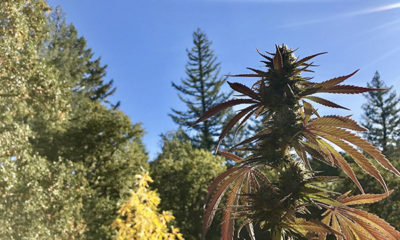
Joint Opinions
New Year’s Resolution: Support People of Color in Cannabis Industry
One writer resolves to move forward into 2018 by focusing on lifting up people of color in the cannabis industry.
This year, I have decided to be more intentional about highlighting and supporting people of color in the cannabis industry. I’ve been covering the cannabis culture since 2013, and in that time, multiple states have legalized adult-use cannabis, decriminalized the possession of certain amounts of cannabis and approved marijuana for medical use. I’ve seen the evolution of popular strains, the rise of cannabis-infused everything you can imagine and witnessed an endless amount of brands and companies come and go.
As I was getting familiar with the industry, I couldn’t help but notice that the number of people of color that were involved was paltry, yet they made up the majority of inmates behind bars for the cannabis-related offenses. While everyone was living the good life out here celebrating the wave of legalization, selling pounds of weed, hosting secret sessions and calling themselves ganjaprenuers, there were people in jail for having just a few grams of weed in their pockets.
And for the people of color that haven’t had issues with the law, finding their way into the industry has proven to be a monumental task. Less than 1 percent of the nation’s dispensaries are owned by people of color and throughout the country they can face challenges to entering the industry from high regulatory costs to blatant discrimination.
Last year, I attended a big cannabis conference, where I was covering the event for a major newspaper and was allowed into a session that was a roundtable discussion of upcoming policy and legislation. Aside from the waitstaff, I was the only person of color in a room of at least 50 people. During the presentation and conversation that followed, everyone felt comfortable to speak candidly and openly among other industry insiders about “taking the industry back from the streets,” “finally bringing legitimacy to cannabis,” “being on the right side of the law” and “not being criminals.”
I sat quietly in the back, a fly on the wall doing my job, as I thought about all the people of color sitting in jail for selling cannabis while I sat in a room of suits and ties bragging about their brands and complaining about the regulations that might make it more difficult to make as much money as possible.
Of course, it wasn’t the first time I’ve thought about it, but in that atmosphere paired with the blatant self-satisfaction and coded language, the disparity was so painfully pronounced that I decided to leave once I got the information I needed.
It’s never been lost on me that people of color have been excluded from the industry, but to be in a professional setting where people were openly congratulating themselves on “taking the industry from the streets” was a new level of disappointment. I’ve always advocated and been vocal about including more people of color in the industry and now I’m at a point in my career where I can choose who and what I write about, I can turn down work that doesn’t speak to me, and I have a wider network and a grander perspective on the type of content that I think should be a part of cannabis history.
If you ask me, people of color are unsung heroes and the true pioneers of the cannabis industry. There’s enough room for everyone from budtender to CEO in this industry, and moving forward, I’ll be making sure that I highlight, document and share their stories with the world.
TELL US, what will you do to support people of color in the cannabis industry?























